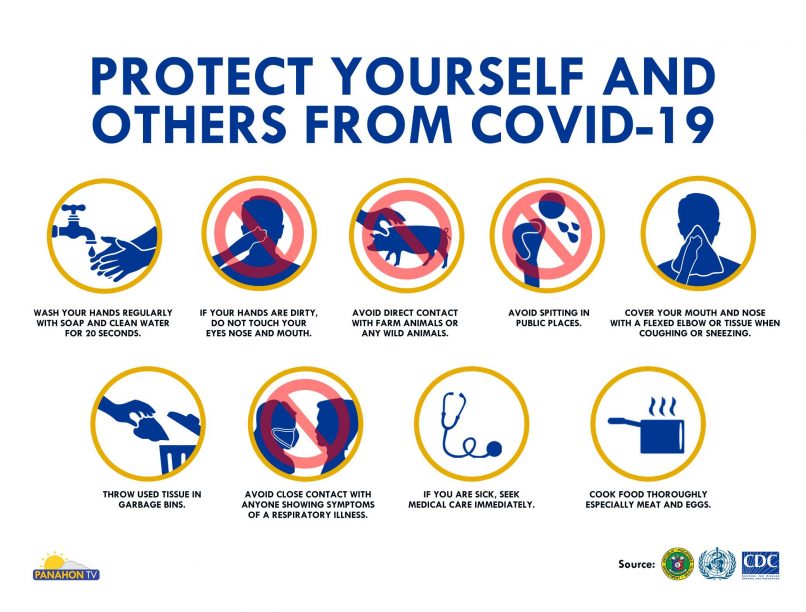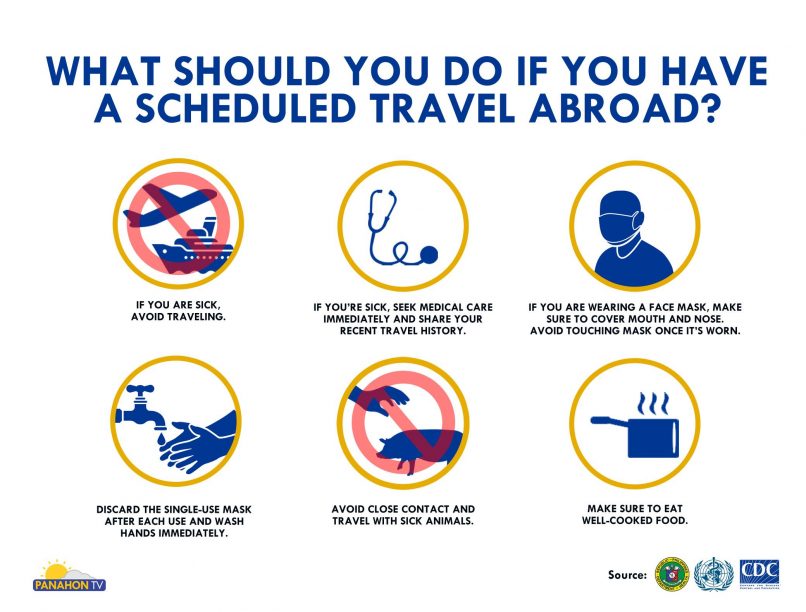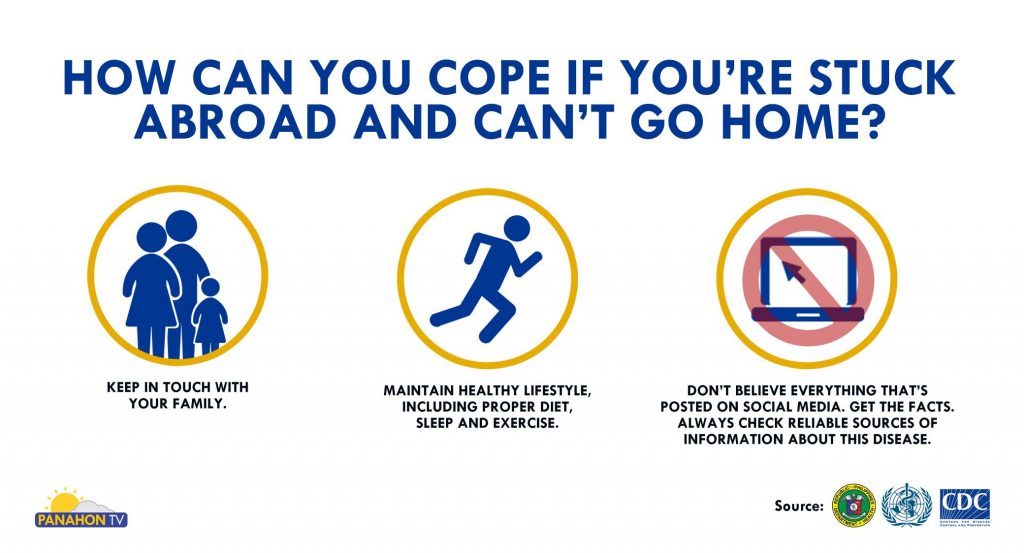- What is coronavirus?
The coronavirus is a type of virus that causes respiratory illness in animals and humans. It is zoonotic, meaning it can be transmitted between animals and humans. The virus was first discovered during the 1960s, and was called coronavirus because of its crown-shaped structure.
As of now, there are seven types of the coronavirus that can infect humans. They range from the common cold to more severe diseases, such as the Middle East Respiratory Syndrome (MERS-CoV), Severe Acute Respiratory Syndrome (SARS-CoV), and its latest strain, the Coronavirus Disease 2019 (COVID-19).
MERS-CoV, discovered in Saudi Arabia last 2012, resulted in 858 deaths. According to scientists, this coronavirus came from camels and has flu-like symptoms. Meanwhile, SARS began in China in 2002. It was reported to have come from a civet cat, and has 8,000 confirmed cases, killing almost 800.
On January 9, 2020, the World Health Organization (WHO) reported a new strain of coronavirus, associated with an outbreak of pneumonia in Wuhan, China. Last February 11, 2020 it was renamed as the Coronavirus Disease-2019 COVID-19.
- Is COVID-19 deadly?
Just like MERS-CoV and SARS, the COVID-19 is deadly. The moment one gets infected, the virus spreads immediately to the lower respiratory tract, including the lungs. This type of coronavirus may cause severe pneumonia in 24 hours, and it cannot be cured by antibiotics.
- What are the symptoms of COVID-19?
Its respiratory symptoms include fever, cough, shortness of breath and other breathing difficulties. However, there are cases of the coronavirus disease that are asymptomatic or display no symptoms. It takes around 14 days before the symptoms appear.
- How can you protect yourself from this virus?
According to the World Health Organization, here are the ways to prevent yourself and others from getting the COVID-19:

- Wash your hands regularly with soap and clean water for 20 seconds.
- If your hands are dirty, do not touch your eyes nose and mouth.
- Avoid direct contact with farm animals or any wild animals.
- Avoid spitting in public places.
- Cover your mouth and nose with a flexed elbow or tissue when coughing or sneezing.
- Throw used tissue in garbage bins.
- Avoid close contact with anyone showing symptoms of a respiratory illness.
- If you are sick, seek medical care immediately.
- Cook food thoroughly especially meat and eggs.
- What should you do if you have a scheduled travel abroad?

- If you are sick, avoid traveling.
- If you’re sick, seek medical care immediately and share your recent travel history.
- If you are wearing a face mask, make sure to cover mouth and nose. Avoid touching mask once it’s worn.
- Discard the single-use mask after each use and wash hands immediately.
- Avoid close contact and travel with sick animals.
- Make sure to eat well-cooked food.
- How can you cope if you’re stuck abroad and can’t go home?

- Keep in touch with your family.
- Maintain healthy lifestyle, including proper diet, sleep and exercise.
- Don’t believe everything that’s posted on social media. Get the facts. Always check reliable sources of information about this disease.
If you need more information, please check these sources:
- Department of Health – https://www.doh.gov.ph/
- World Health Organization – https://www.who.int/
- Centers for Disease Control and Prevention https://www.cdc.gov/

On the first day of June 2017, United States President Donald Trump withdrew from the Paris Climate Agreement, a global effort that aims to limit carbon emission. This decision has caused quite a stir, especially since the US is the second largest carbon emitter in the world. Despite this, the Philippines, together with more than a hundred nations, continue its fight against climate change.
As citizens of a country exposed and vulnerable to the effects of climate change, we need to understand it better. Here are answers to some of the frequently-asked questions about climate change:
1. What’s the difference between climate change and global warming?
These terms are sometimes used interchangeably, but refer to different things. Global warming is the long-term warming of the planet. The average global surface temperature has crawled up by about 0.8 degrees Celsius relative to the mid-20th century baseline.
Climate Change includes global warming, and talks about the broader range of changes in our planet, which include rising sea levels, shrinking glaciers and the melting of ice in Greenland, Antarctica and the Arctic. All of these are the consequences of the warming caused by the burning of fossil fuels.
2. What’s the difference between weather and climate?
Weather refers to the local changes in short timescales and is basically what you see outside on any particular day. This can change from minute to minute, hour to hour, day to day or season to season.
Meanwhile, climate refers to the general weather pattern in a specific area that involves temperature, humidity, rainfall, air pressure and other meteorological variables over a long period of time. The National Aeronautics and Space Administration (NASA) defines this as the average weather condition based on 30 years of observation.
3. What is the Greenhouse Effect?
The Greenhouse Effect is the process in which heat gets trapped in the surface of the Earth because of too much concentration of greenhouse gases like carbon dioxide, methane and nitrous oxides. These gases blanket the planet, making it much warmer.
Greenhouse gases keep our planet liveable because without these, the Earth will be an icy planet. Despite being a natural part of the atmosphere, the level of these gases, especially carbon dioxide, has been rising consistently for decades because of human activities. More heat is trapped, leading to higher temperatures.
Rising temperatures contribute to the intensity of tropical cyclones, and the increased duration and amount of rain, extreme drought and habitat loss for various species.
4. Do scientists agree on climate change?
Yes. According to the National Oceanic and Atmospheric Administration (NOAA), the vast majority of climate scientists or about 97% agree that humans are causing climate change. Moreover, most of the leading science organizations around the world have issued public statements confirming the existence of climate change and global warming.
NOAA added that some scientists that reject the idea are not experts on climate or do not understand the scientific basis of long-term climate processes.
5. Are volcanoes related to climate change?
When volcanic eruption occurs around every 20 years, this causes a massive release of particles and other gases.
This event leads to global cooling where droplets of sulphur-rich aerosols reflect sunlight from the Earth—just like when Mount Pinatubo erupted on 1991 where an estimated 20 million tons of sulphur dioxide and ash particles shot up to more than 20 kilometers into the atmosphere. NASA noted that over the next 15 months, scientists measured an average global temperature decrease of about 0.6 degrees Celsius since the eruption.
6. Can climate change trigger earthquakes?
Some scientists and geologists claim that changes in seasonal rainfall and their frequency contribute to the occurrence of earthquakes. However, scientific evidence is not enough to support this.
Shankar Nath of the Indian Institute of Technology at West Bengal said climate change has no impact on the incidence of earthquakes. Supporting this is Sunanda Bandapadhyay, a geographer from Calcutta University, who believes that the recent human-induced acceleration in global temperatures is insufficient to have any noticeable impact on the Earth’s tectonic processes that cause earthquakes. The impact of climate change on tectonic activities is still an ongoing debate.
Sources:
National Oceanic and Atmospheric Administration (NOAA)
National Aeronautics and Space Administration (NASA)
www.thethirdpole.net
